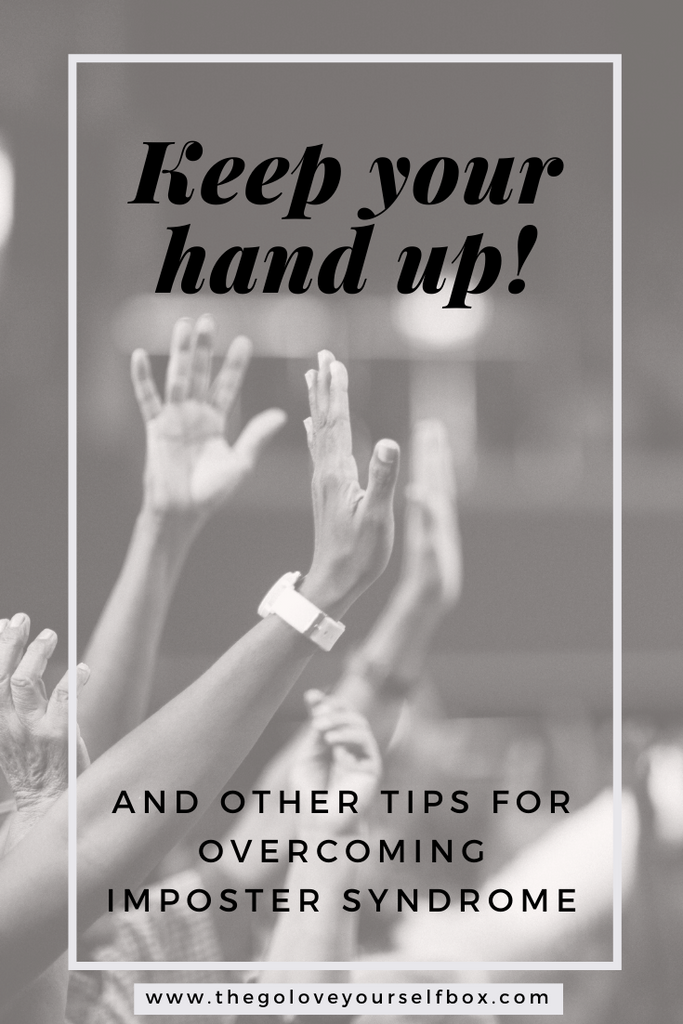Successful women across the globe are quietly fighting an internal battle that has a simple, but not easy, solution. Over the last century, we’ve been able to effectively close the education gap between men and women in the United States, but not the leadership gap. Worse still, even as we ascend into the leadership roles we deserve, nagging inner-doubts remind us that we don’t belong. This phenomenon has become known as Imposter Syndrome.
Well documented by research, this phenomenon speaks to the ill-at-ease feelings many highly accomplished women feel. While it manifests in a myriad of ways depending on your individual upbringing, education, conditioning, and stories of self, the results are eerily similar: we find ourselves feeling fraudulent, undeserving of title or position, and hiding these feelings from others, lest we reveal what (we believe) they already know: we’re not cut out for this.
Last week, at an event co-hosted by Ellevate Network and Verizon entitled Leaders of Telecom & Tech, a five-part series designed to foster a powerful community of women in the telecom and tech industries, I heard the undercurrent of imposter syndrome and not-good-enough-ism running throughout the panel conversation.
The conversation was an important one, and included important ideas to consider, such as the role of community in creating change in both individuals and the systems we create, paying attention to the quality of the community we keep, and the importance of leveraging our community as we grow and promote ourselves as leaders.
“Find a community of women who will challenge you,” said Ingrid Duran, CEO and Founder of D & P Creative Strategies, “and when you get where you’re going, look back,” underscoring the importance that we lift as we climb.
“The three relationships that are most crucial to your success,” offered Jacqueline Welch, Senior Vice President of Human Resources, Diversity and Inclusion, and Chief Diversity Officer of Freddie Mac, “are your mentor, your coach, and your sponsor.” These are the humans who know you best, grow you intentionally, and advocate on your behalf when you aren’t there.
“If you could coach yourself,” added Kim Keenan, Executive Vice President of Marketing and Research, General Counsel of Odyssey Media, “you wouldn’t need one.”
The conversation took a decidedly concrete turn as we honed in on the ability of a community to challenge and push its members to share information, especially as regards to income and salary, and new ways of being, such as negotiating for higher starting salaries and raises.
“Women don’t ask,” Jaqueline continued. “HR expects you to negotiate, so when you don’t, they will be disappointed…[we] can’t outbid [ourselves]!” she said of job offers. A survey of Ellevate Network members in 2016 confirmed this—less than half of members had ever even asked.
When women are feeling self-conscious or fraudulent about a new role, we undermine our own ability to be present, data-driven in salary negotiations, and ultimately, poised for success in our own long-term financial well-being.
“So, what do we do about it?” I asked.
“The core of leadership,” noted Kathleen Grillo, Senior Vice President of Public Policy and Government Affairs at Verizon, “is to ask for what you want,” and to be courageous in your pursuit, which is increasingly hard the less you feel like you deserve to be there. “I see it…in the smartest and most qualified women,” she said later. The antidote? “Talk about it.”
“Take a deep breath,” Kim recommended. “I’m in the room because I add to the mix…. if I don’t add to the mix, I’m doing a disservice.” She also stated, quite simply, “exercise your power. If you have the title, own it. Use it… Surprise the people in the room.” And, for mantra lovers everywhere, “fake it ‘til you make it.”
And the most important take-away I had that night? Keep your hand up.
When moderators remind audience-goers that there’s time for one last question, Valerie Young notes in The Secret Thoughts of Successful Women, women put their hands down. Men don’t, resulting in more men getting questions answered. I tried it out.
“Last question!” offered Kristi Wallace, CEO of Ellevate Network and the evening’s panel moderator. With a racing heart and pulse ringing in my ears, I intentionally kept my hand raised, well after the last question was offered and answered. My arm, strong and straight, quivered as my eyes darted back and forth. Will they call on me? Am I embarrassing myself in front of this community of leaders? Will they interpret my willful disobedience as brash, or brazen, or disrespectful?
Regardless of how each of the panelists might have interpreted me, I kept my arm straight up in the air. “Thank you,” Kristi began to close, my cheeks increasing in heat. “Oh!” interrupted Jacqueline, saving me from complete embarrassment and confirming my theory, “she still has a question!”
While imposter syndrome, left unquestioned, can wreak havoc on an individual woman’s sense of confidence and competence, there’s a bit of comfort in not only knowing that some of the most successful women in the United States are feeling similarly, but also that there are strategies and experiments we can implement to reduce or eliminate the feelings over time, one woman, community, experiment, and raised hand at a time.
Have you tried this experiment? Did it work?
Do you have other tips do for overcoming imposter syndrome?
Continue the conversation in the comments below!
